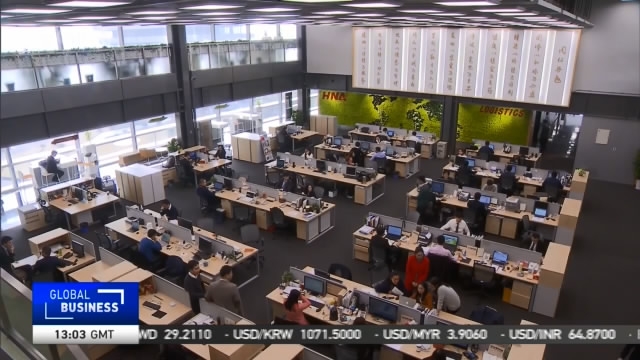
21:18, 27-Feb-2018
Overseas Investments: Chinese firms face tighter scrutiny over outbound investments

Several Chinese firms are selling off overseas assets as the government tightens scrutiny on outbound investments. Does this mean overseas assets are becoming less attractive? Mi Jiayi reports.
Outbound investments worth more than 300 million dollars are now to come under tighter government supervision, according to the Ministry of Commerce. Investments in "sensitive countries and regions" or "sensitive industries" will also be a new focus of regulatory supervision and examination. Previously, companies investing abroad were only required to complete record filings with central or local economic planners starting their investment projects. The new rules stipulate that record-filing and supervision will be required through the entire life of an investment project. One analyst says the tougher regulation is the result of poorly planned and highly leveraged investments in the past.
JOHN XU, CORPORATE PARTNER LINKLATERS LLP "These regulations follow the same spirit as those issued in August last year - it's reining in irrational investments. In fact, in the past few months, there's hasn't been much of an increase in property and entertainment investments, which means the regulations are working. But still 2017 data show that leverage remains quite high for companies shopping overseas - 78 percent of the funding for outbound investments was from credit financing. And some of the overseas assets are not performing very well. So high leverage and tightening liquidity are having an effect on the ability of the companies to invest abroad.
Star investors are pulling their money back from the property sector overseas. HNA Group is cashing out by selling an office building in Sydney for 161 million US dollars. The group bought the asset in 2011 for around 94 million US dollars. The company has sold its assets in Spain, and said earlier that it's planning to sell its property in London as well. At the same time, Dalian Wanda Group is dumping its Australian property assets in Sydney's Circular Quay and Gold Coast for 2 billion Australian dollars, despite the fact it spent 2.3 billion buying them in the first place. Wanda is also selling its Nine Elms Square property project in London. So does this mean the overseas market is less and less little attractive to domestic investors?
JOHN XU, CORPORATE PARTNER LINKLATERS LLP "I think the companies selling overseas have two reasons. One is regulatory pressure - that they are not encouraged to invest in some restricted industries has made them sell those properties. But another important reason is that this helps them get more cash and deleverage. But judging from the cases we are handling right now, and from the overall trend, domestic firms remain enthusiastic about outbound investment."
China eased its restrictions on outbound investment in 2014, and implemented a registration-based system to simplify the application process. That allowed outbound investment to flourish, and reach a record 170 billion US dollars in 2016. Regulators thought this was too much too soon, however, and began tightening regulations last year. As a result, China's non-financial outbound direct investment dropped nearly 30 percent in 2017 from the previous year.

SITEMAP
Copyright © 2018 CGTN. Beijing ICP prepared NO.16065310-3
Copyright © 2018 CGTN. Beijing ICP prepared NO.16065310-3